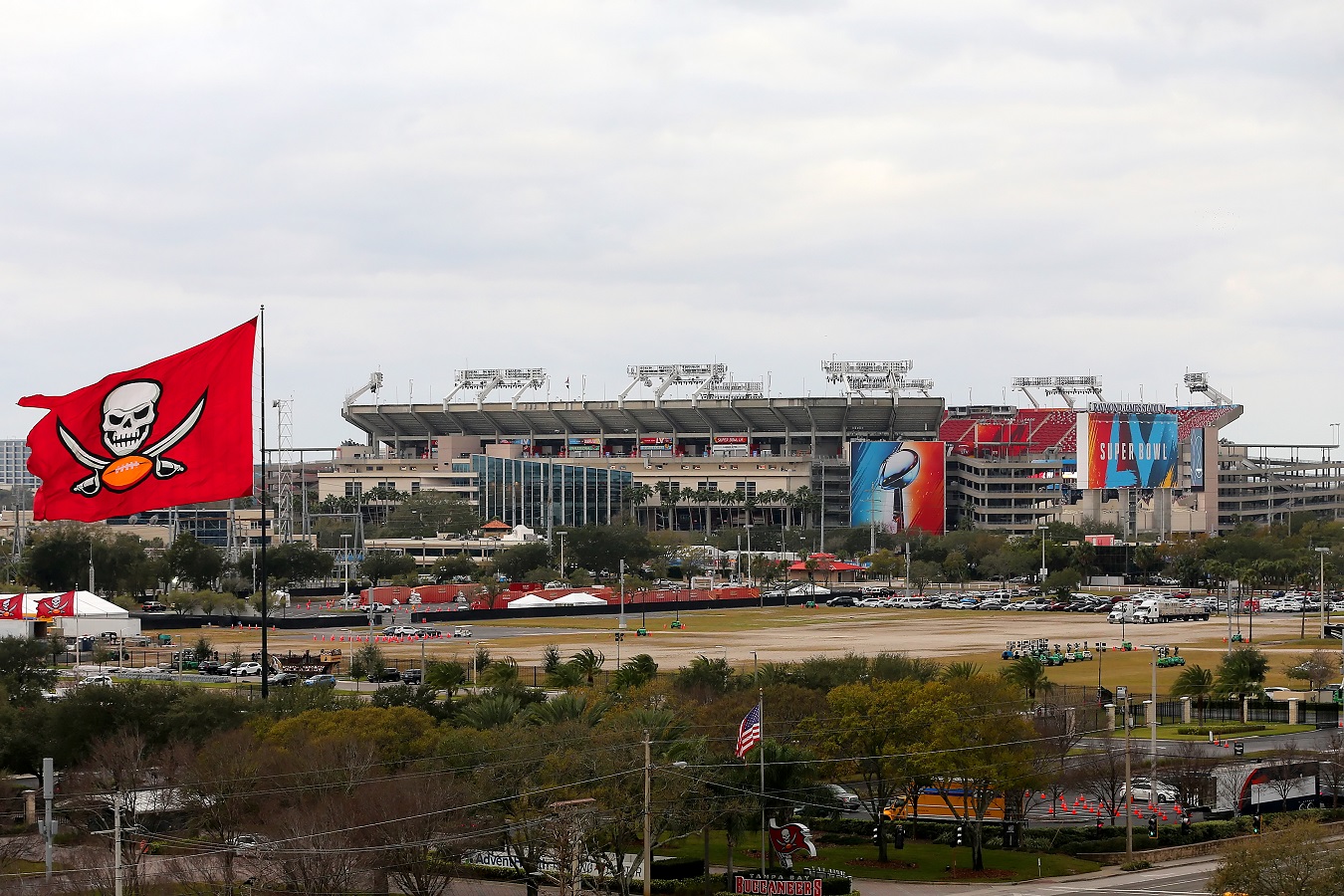NFL
Why Is There a Bye Week Before the Super Bowl?

For the first time since 2009, the Sunday before the Super Bowl played out with no NFL game to watch. The Pro Bowl, which would normally have been played that weekend, was reduced to a virtual “celebration” through Madden NFL. But why implement this bye week to begin with? Why, after 20 straight Sundays of NFL action, interrupt the flow right at the very end?
Why the bye?
RELATED: What Happened to Super Bowl-Winning Quarterback Trent Dilfer?
The pre-Super Bowl bye week is as old as the Super Bowl itself. The first “AFL-NFL World Championship” between the Kansas City Chiefs and Green Bay Packers took place on January 15, 1967 – two weeks after each team won its respective league’s championship game. According to NFL spokesman Greg Aiello, there was a simple reason for this.
The concept was to give the promotion of the game time to build. The two-week break has been standard procedure since the first Super Bowl. There have been one-week breaks a handful of times when circumstances dictated it. Another benefit is that it gives the two teams more rest and recovery from injury.
Greg Aiello, via The Guardian (2016)
One of those “handful of times” was Super Bowl XVII in 1983, which took place without the standard two-week break. That game took place during the strike-shortened 1982 season, which necessitated drastic changes to both the schedule and the playoff format. Super Bowls IV and XI also took place without the standard week off.
The most notable case of the NFL ditching the standard pre-Super Bowl bye week came before Super Bowl XXXVI in 2002. The terrorist attacks of September 11th, 2001 forced week two’s slate of games to be pushed to the end of the regular season. This caused a ripple effect all the way to the Super Bowl, which had originally been scheduled for Jan. 27.
As a result. this was the first Super Bowl to take place in February. All but one has taken place in that month ever since.
Side benefits
RELATED: Shaq Looks Forward to Tom Brady and Patrick Mahomes Fighting to the Death
As Aiello mentioned, the bye week allows the hype of the big game to simmer for seven more days. One would think that if any event didn’t need additional hype it would be the championship of America’s most popular sporting league. However, the tactic seems to have paid off. Nineteen of the top 20 most-viewed programs in the history of American television are Super Bowl games.
Aside from that, the bye week allows the two teams seven extra days to travel, prepare, and finalize their plan for the biggest game of their lives. This is especially important now that practically every day leading up to the Super Bowl is a media circus where players cannot avoid the limelight even if they try. In non-pandemic years, “media day” demands that the players take time out of their schedule to parade themselves before the cameras.
When the NFL did away with the bye week for Super Bowl XXV in January 1991, it met with some resistance. Hank Stram, then working as an analyst for CBS, was not pleased.
I don’t think anybody can prepare for a Super Bowl in one week. The so-called off-week is more important than the week right before the Super Bowl. The off-week gives the coaches time to prepare and the players time to rest.
Hank Stram, CBS NFL analyst and former Super Bowl champion head coach, 1990
Filling the bye week

Football fans today have it easy. (Well, not quite so easy this year, but…) Before 2010, there used to be no game at all to fill the empty void on the Sunday preceding the Super Bowl. That year, the NFL moved the Pro Bowl into that slot in a bid to increase that game’s relevance. Before then, the Pro Bowl took place the week after the Super Bowl.
This move came with consequences, however. Because of the new timeslot, any players who are to participate in the Super Bowl are now automatically exempt from the Pro Bowl and replaced. After all, it would be a P.R. disaster if a player could not participate in the Super Bowl after suffering an injury in a meaningless all-star game.
Then again, it kind of defeats the purpose of a league all-star game when some of the best players in the league are not participating. Still, at least there’s some pro football to watch during the Super Bowl bye week.











